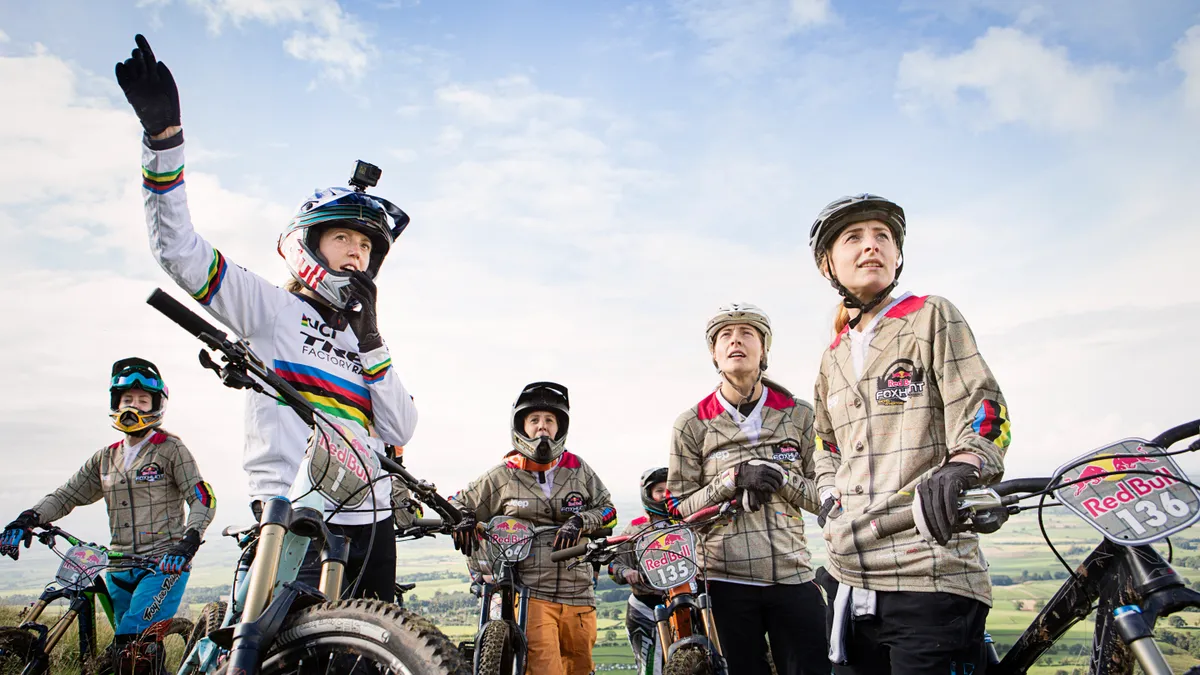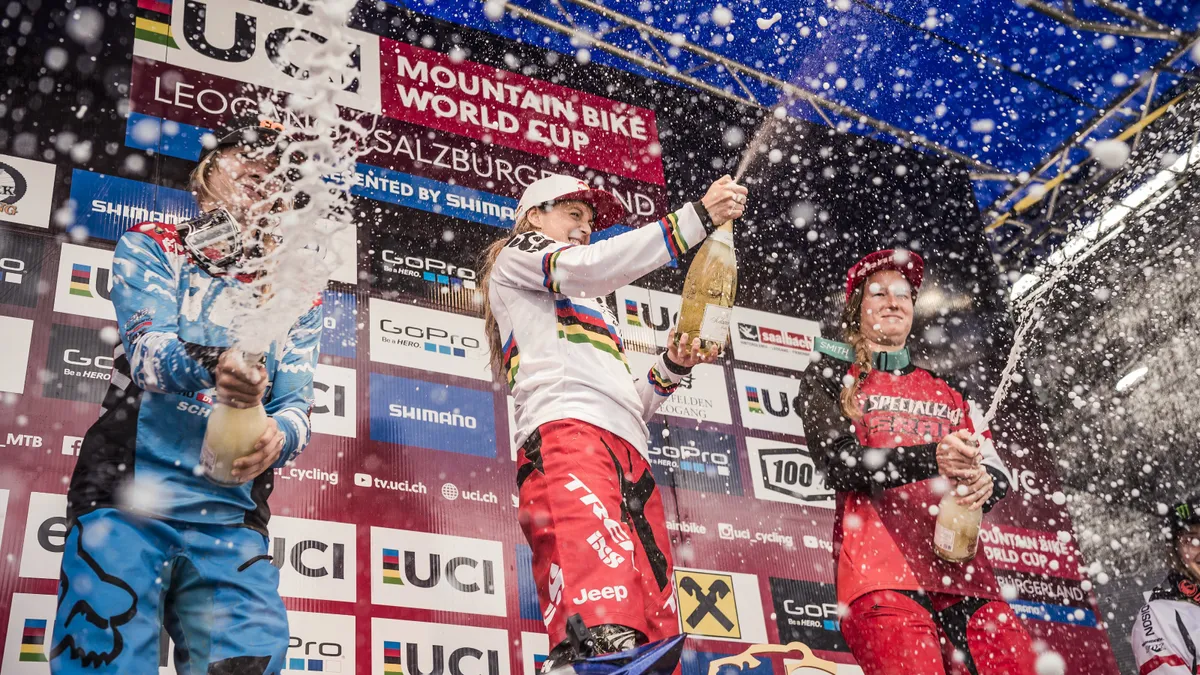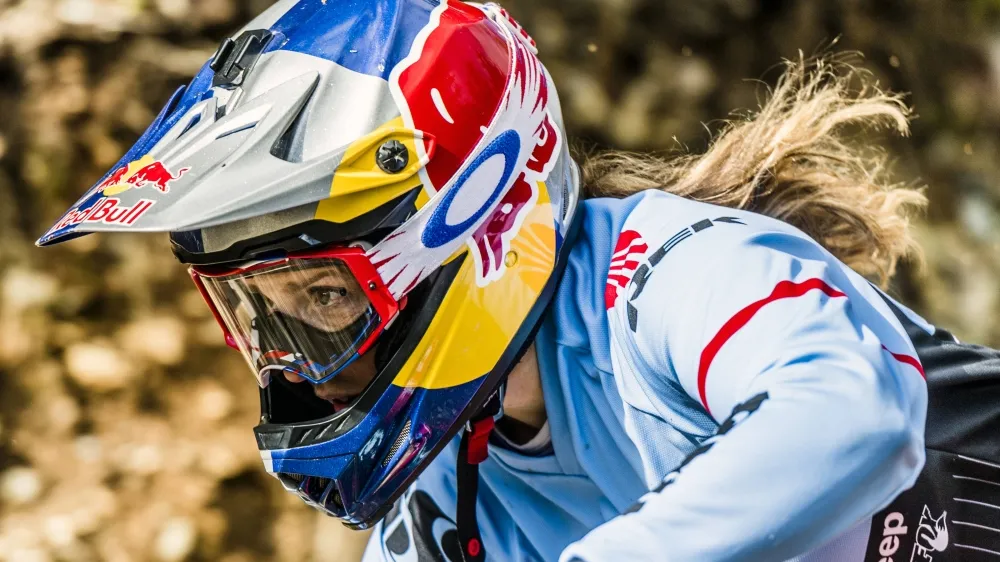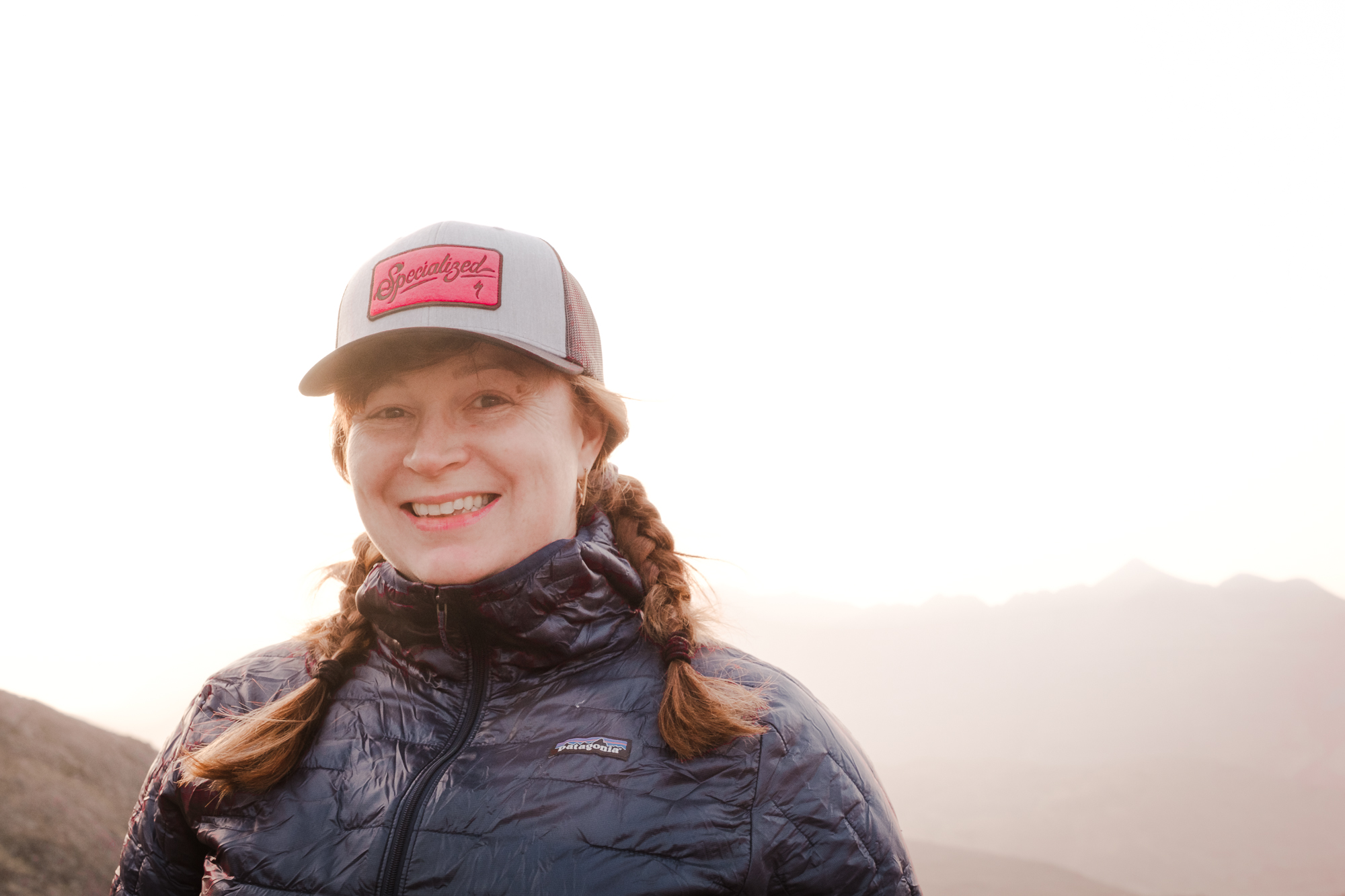Rachel Atherton is undoubtedly one of the greatest athletes of our time. She starts 2017 off the back of a 'perfect season' in 2016, winning every single world cup race on the UCI Downhill World Cup circuit and the world championships to boot. She was crowned BT Sports Action Woman of the Year and was later awarded the title of Laureus World Action Sportsperson of the Year.
- Liv Cycling's Bonnie Tu says the future is bright for Women's Cycling
- 5 tips for riding rough terrain
- A day in the life of Hope Tech's Rachael Walker
This list barely scratches the surface of her accomplishments, so what motivates this woman to such heights? BikeRadar caught up with the Trek Factory Racing rider before the start of the 2017 season to try and discover some of the elements that go into making a multiple world champion, what keeps her motivated when training, and what drives her outside of racing.

1. Passion for the sport, hunger for the win
Atherton's passion and dedication to the sport is unsurpassed.
She started racing at a very young age, took her first National Champs title in 2002 in the Youth category aged 15 and has been on the top spot of the podium at the National, European or World Cup level nearly every year since — and often more than just one of the above!
I'd like to see more girls racing and more grassroots events that appeal to young girls
Atherton is always hungry for the win, always nervous on the start line, and willing to acknowledge that riders snapping at her heels keep her fighting for victory. "Tahnee [Seagrave] got to within 0.7 seconds of me at Lenzerheide, so I laid everything on the line!" she says.
Ask her to name her favourite moment from her best season ever and it's understandably a tough question. "This season is even more difficult!" she ponders. "Winning by such a big margin at Mont-Sainte-Anne was awesome and Vallnord made it seven out of seven World Cups… then even that got overtaken the next weekend by winning the World Champs at Val di Sole and put the icing on the cake! There were so many good times."
2. Variety
It takes an insane amount of work to achieve the heights Atherton has climbed to. Each and every World Cup win comes off the back of weeks, months and years of dedicated training, immense discipline, determination in the face of injury and a deep passion for the sport.
She has 15 years of hard racing under her belt; plenty of time to hone her craft, but also the risk that the love may wane or the training may become monotonous. Variety is key in the battle against boredom.
"We’re working with a new coach Nick Grantham who doesn’t come form a mountain biking background so he’s really changing up our training," says Atherton of her off-season training in the run-up to the first race of the year in Lourdes in April.
"Just before the season starts we’ll be spending a lot of time on the downhill bike; probably three days of the week we’ll be out on the Trek Sessions with three days of gym sessions and road riding or cross-country mixed in. I try to do loads of yoga and keep up with physio and massage too."
3. A good work/life balance
"Winning races is really important to me but so is my homelife," says Atherton, and anyone who follows her on Instagram will know about the close ties she has built with her adopted town of Machynlleth in Wales. She doesn't just exist there in the off-season, she is part of the community and has built a home there.
"Me and boyfriend Olly Davey have spent the winter renovating a cottage in the Dyfi Forest and its looking mint!! It's amazing to be part of such a close knit community and to have Olly and Caio pup to come home to."
4. Getting more women racing

While the number of women on bikes is increasing, there's still a very clear deficit in representation when it comes to races and that's something Atherton wants to address.
I’d love to see better exposure for our sport in terms of race coverage
While the UK is fielding some of the best downhill athletes in the world — currently in the form of Atherton, Manon Carpenter and Tahnée Seagrave — where will the next generation of racers and rippers come from if there aren't the opportunities to race, the financial support to pay for race entries and equipment, and the recognition and coverage needed to gain sponsorship?
Atherton, not content to watch from the sidelines, is doing something about this herself.
"I'd like to see more girls racing and more grassroots events that appeal to young girls. I've said loads of times how sometimes when I was growing up I’d be standing on the podium all on my own and that’s not very motivating! [That] was a huge driver for me getting involved with sponsorship of the Junior Women’s category at the British Downhill Series (BDS) and I’ll be sponsoring the category for the third year running in 2017. I’ll also be continuing to mentor Mille Johnset under our Atherton Academy scheme; that girls shreds!
It's not all about the young shredders, however. The Red Bull Foxhunt, which has run with Atherton for three years now, provides that first dip of the toe into racing for women of all ages, experience and skill levels. The yearly event sees Atherton as the 'fox' versus a pack of riders as 'the hounds' in a mass start event with a twist: the fox starts behind the hounds and must overtake as many as possible on the way down the mountain.
"Events like the Red Bull Foxhunt are absolutely awesome! Almost half of the women that raced on those weekends had never raced before and now loads of them have entered for enduro races or local DH races, and the women who came to the first event in 2014 all came back in force in ‘15 and ‘16 and brought their friends!" enthuses Atherton.
"There were women of all ages riding at those weekends which proves it's not just about the youngsters. You can start to race mountain bikes at any age and still have a lot of fun."
5. Raising the profile of the sport
2016 also saw Atherton added to the British Cycling Gravity Commission, the part of British Cycling's governing body that "provides expert help, support and advice," representing mountain biking to British Cycling's board and senior management. .
"It was never an aim to get onto the governing body, but helping to progress the sport, push its boundaries and raise the profile of DH with a wider audience [then] yeah, that’s what we [at Atherton Racing] have always been about. This is just another pathway to achieving this."
Her objectives are clear: "I’d love to see better exposure for our sport in terms of race coverage," she says and considering that a recent article in The Telegraph newspaper described her as "the greatest champion you've never heard of" — and we're talking about a sport at which the UK is currently excelling — it seems almost laughable that downhill receives little to no mainstream attention.
"There is such an exciting product. Imagine how great the televised World Cup Series could be, how many potential new riders we could reach! I’d love to see better support for young riders and to put Downhill more at the centre of British Cycling’s development strategy."
6. Proving herself

The emotions that come with such a perfect season are understandably mixed. On the one hand there is an immense sense of triumph and success, on the other hand, we sense, a slight sadness.
"It's hard to come to terms with the fact that I'll probably never be as good as I was last season again," Atherton comments, "but it does mean that I'm going to try and enjoy myself and enjoy racing more."
"I feel like I don't need to prove anything to anybody, so I'll try to relax and not be so nervous."
Given that Atherton has dominated the women's downhill scene for years, you might be surprised to hear that she gets nervous. As for proving herself, she clocked a whopping 73.657km/h through the speedtrap at Mont-Sainte-Anne, which was just a smidge behind Aaron Gwin who reached 74.418km/h and ahead of Danny Hart, and most of the rest of the male riders. And we repeat, this is on top of achieving the world first of a perfect season. Atherton has nothing to prove.
She is also, finally, receiving more mainstream recognition for her achievements, with award wins such as the 2016 BT Sports Action Woman of the Year. And while many would welcome such laurels, for the hardworking and humble Atherton it's more about the raised profile they give her beloved sport.
"I’m not really that worried about media recognition for its own sake. I‘m really happy when I win awards like the BT Sports Action Woman of the Year or Laureus because of what they do for the profile of Downhill, not because they make me feel like a great person!"
7. Making a difference and inspiring others
To say Atherton is an inspiration to many riders is no less than the truth. Her accomplishments are enough to demonstrate to anyone that women can compete to the highest level, and with her growing profile came the opportunity to get more people riding and racing, an opportunity that she has grasped with both hands.
Inspiration on its own isn't enough; opportunities, a pathway upwards and onwards, and visible role models are an important part of generating successful change and Atherton is happy to use her influence to effect this.
"I think we’re really lucky in that there is a good level of equality in the sport already; for instance in equal prize money for male and female categories [in downhill racing]. I’m a massive believer in the power of social media to share our stories and inspire others to try our sport.
"Gone are the days when we’d have to wait for budget from a magazine editor to make a film or shoot a feature. We can share our own stories! I’m passionate about getting as many girls and women to race as I can because I know they are going to love it so I’ll continue doing what I can to encourage that."

